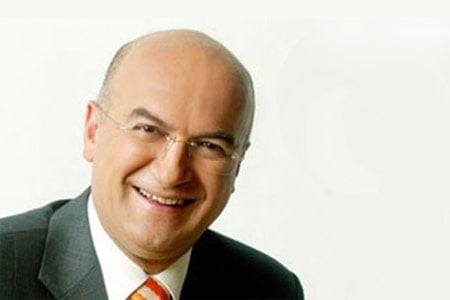What is this bedlam all about?

Date posted: December 22, 2013
YAVUZ BAYDAR
So, as expected, Prime Minister Recep Tayyip Erdoğan declared all-out war. The enemy — what he and his advisers regard as “the junta formation within the police,” the media, the judiciary, the American Embassy, affiliates of the mainly volunteer Hizmet movement, and, well, whoever seems to disagree with the way he intends to run the country and whoever tends to believe there is no smoke without fire — have dug their trenches in a circle.
Increasingly, day after day, with one erratic decision after another and choices based only on basic survival instincts, his war is sinking inexorably into desperation.
As over 50 people, including the sons of his two key ministers — interior and economy — the CEO of Halkbank and a shady businessman for organized criminals, were detained and a massive amount of bribe money was seized, Erdoğan managed in a series of rallies on Saturday at the Black Sea Coast to characterize elements of the state as the “enemy within” and issued a series of open threats to the judiciary, warning it to pull itself together, adding, “there are things we know, too.”
Elaborating further, he accused the opposition parties, the Republican People’s Party (CHP) and the Nationalist Movement Party (MHP), of forming, together with the Turkish Industrialists and Businessmen’s Association (TÜSİAD), an alliance to topple him. He warned both “capital” and the media to “watch it,” or else.
While one of his chief advisers was busy explaining on TV how his beloved boss was under a “global assault,” the prime minister addressed “foreign ambassadors” — implying the US ambassador, who was depicted by pro-government media as an accomplice in this “conspiracy.” But, realizing that the story (planted, rumors say, by a minister implicated in the probe) was fabricated, he backed down.
The damage, however, was done.
Erdoğan has intervened in the top echelons of the Finance Ministry’s Financial Crimes Investigation Board (MASAK), Turkey’s up-to-now independent and efficient financial police unit, rapidly amended a law to stop basically any criminal inquiry into the government or its branches, removed more than 100 police chiefs in the course of 72 hours and banned the media from entering police headquarters.
Meanwhile, the four ministers implicated in the probe are still in charge — the most worrisome of which is the interior minister, who has the power to make administrative changes to the police force.
There are two major points of concern, as of now:
Move after move, in full defiance, Erdoğan is demolishing what remains of the fragile separation of powers in Turkey and tightening the screws on the judiciary.
Second, by the extensive purge of the police force, he has made the security mechanism of Turkey much more vulnerable to internal and external acts of terror and provocations. Yet he seems fully determined to take the ship into even more dangerous waters.
We see a pattern, this time in much bolder lines: Deeply mired in what is definitely his worst nightmare ever, Erdoğan is sticking to methods and solutions that only promise to turn Turkey into Turkmenistan — further exacerbating its “precious loneliness.”
On Saturday, Erdoğan found another angle: The attack against him, he argued, happened because the “axis of evil” didn’t want to see the Kurdish solution process succeed. It didn’t make sense at all: Only days ago the courts refused to release the jailed Peace and Development Party (BDP) deputies, as they also refused to free Kurdish journalists tied to the Kurdistan Communities Union (KCK). For the Kurds who don’t vote for the AKP, the process is just a cunning tool to delay the reforms, and they remain largely unconvinced.
It is Erdoğan’s war against the world. As Marc Champion, a colleague at Bloomberg, argues: “Precisely because Erdoğan has concentrated power so closely around himself in just a few men, any perception that they are corrupt will immediately infect his personal image and support. This is why Erdoğan hasn’t fired the four ministers …”
He will fight to the very end, antagonizing whatever and whoever gets his way, but the damage caused may in the end be tremendous.
Mind this: At the very core, this ordeal is about the future of Turkey. It is about a choice between a new Turkey based on morality, or sheer banditry and impunity. But Turkey as I know it will surely resist being turned into a Central Asian republic.
Source: Today's Zaman , December 22, 2013
Tags: Democracy | Freedoms | Hizmet and politics | Turkey |
























